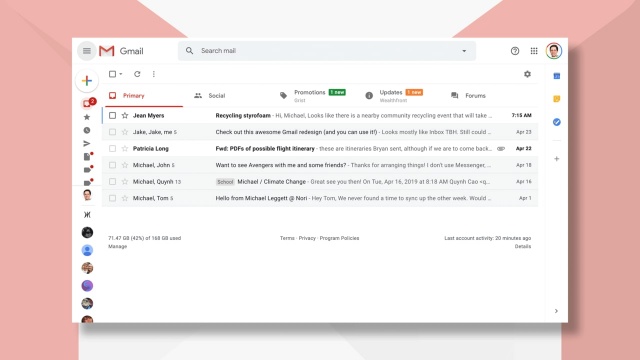I'm extremely concerned about privacy related to these companies and I also think this is a great development. We're going to need to trade some privacy for safety to get society going again. Kottke had a neat comic explainer about how contact tracing works: How Privacy-Friendly Contact Tracing Can Help Stop the Spread of Covid-19.
Is this a victory for Google?
"Just last year, the Court held that 'merely hosting speech by others is not a traditional, exclusive public function and does not alone transform private entities into state actors subject to First Amendment constraints,'" writes McKeown.This ruling confirms again that the big platforms are private companies, not part of the government. The idea of First Amendment rights do not apply at YouTube, Facebook, etc. This is confusing for many people and the platforms themselves benefit from this confusion and deepen it with their marketing language. This case touched on that:
"YouTube’s braggadocio about its commitment to free speech constitutes opinions that are not subject to the Lanham Act," writes McKeown. "Lofty but vague statements like 'everyone deserves to have a voice, and that the world is a better place when we listen, share and build community through our stories' ... are classic, non-actionable opinions or puffery."When platforms host garbage they often use the idea of free speech as a shield from criticism. This ruling weakens that shield.
"The new thing here is that Yandex is working not just as a reverse image search tool; it seems to be doing facial matching."Nelson has an interesting follow-up to the bellingcat guide to reverse image searching I posted recently.

The state of reverse image search on the web.
"...if you only use Google for reverse image searching, you will be disappointed more often than not."As disinformation season ramps up in 2020, finding an image origin is a useful tool to have.

"Either we must submit to this pervasive surveillance machinery – where our data is easily weaponized to manipulate and influence us – or forego the benefits of the digital world. This can never be a legitimate choice."Amnesty International the organization is wrestling with their use of Facebook in the wake of this report: We called out Facebook and Google but still need them. That's exactly the problem. They go on to say:
“We are trying to pull off the difficult balancing act of carrying out our duty to spread our human rights message while spending money with companies profiting from problematic surveillance. The reputational risk grows with every scandal. ”I hope we see some progressive organizations start to distance themselves from Facebook. If they won’t, who will?

Take 25 minutes to watch this. He makes a fantastic, succinct argument for regulating social media to stop the reach of hate speech.
Om Malik tapped into a current of mistrust around smart device features sponsored by the big services after he wrote about his hesitation: Hello HomePod. So Long Sonos & Bose. Even my first generation Sonos speakers attempt to phone home frequently (for use stats?) and I block that with pi-hole. When I wanted to add a speaker recently I purchased a used first gen on eBay because I don’t want yet another always-on microphone in my home. I mean, have you seen the headlines?
This is another great post about changing digital habits, google edition. This is feeling more possible to me every day. I need to switch to Fathom Analytics here. Google Analytics is overkill for a personal website. And it wasn't mentioned in this post, but I still haven't found a good alternative to Google Maps on my phone. Apple Maps has been improving but it's still not as accurate in my experience.

I've been using this Simplify Gmail chrome plugin for a week now and I highly recommend it. I've been accidentally clicking compose ever since Gmail added the fly-in-on-hover navigation on the left. This plugin removes that and adds a floating compose button in the lower right. It removes several distractions around the edges and lets you focus on reading email—which is what you're there to do.
Google Maps has had indoor street view for seven or eight years now. This site collects images of the Google Maps robot caught in the mirrors of those interiors. The juxtaposition of lavish preserved 18th century decor with the utilitarian machine eye feels like something out of a Kubrik movie. And the lack of humans in most pictures makes it look like a post-depopulation survey.

I never get tired of these stories where people change their digital habits. This piece by Kashmir Hill is an extreme example, but also a good illustration of how ubiquitous the major tech companies are. Understanding the often hidden architecture of our tech environment helps us make mindful decisions. A couple other posts in this genre I've enjoyed lately: Bye, Bye, Google by Bogdan Popa and Pulling the plug on Facebook by Drupal founder Dries Buytaert.

Not following the daily long scream of social media news? This article is a good way to catch up on the fresh horrors. Facebook is really leading the way in ethical absence:
- TechCrunch: Facebook pays teens to install VPN that spies on them
- Mashable: Facebook employees react to scandal on gossip app
- ProPublica: Facebook Moves to Block Ad Transparency Tools — Including Ours